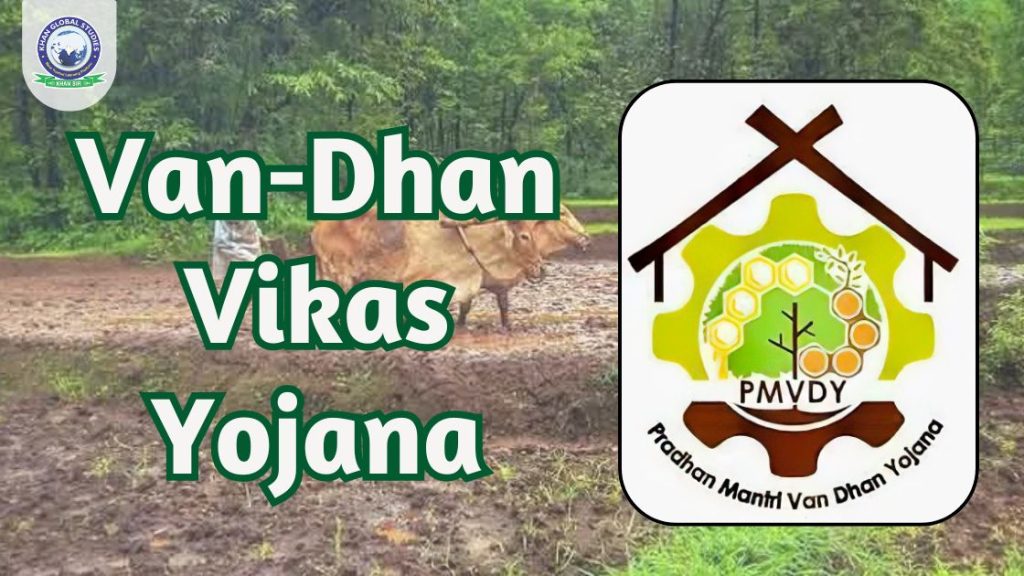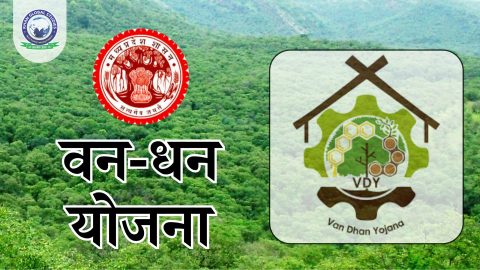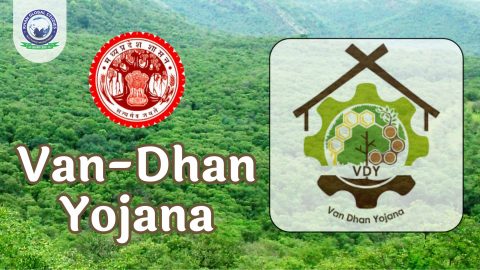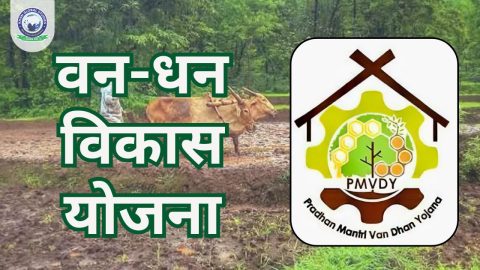Van Dhan Vikas Yojana (VDVY) is an ambitious initiative launched by the Government of India to empower tribal communities and increase their income from forest resources. Launched by Prime Minister Narendra Modi on April 14, 2018, the scheme aims to expand livelihood opportunities for tribals living in forest areas and make them self-reliant.
Key Objectives of the Scheme
- Increasing Income of Tribal Communities from Forest Resources: The primary goal of VDVY is to increase the income of tribal communities by assisting them in the collection, processing, value addition and marketing of Minor Forest Produce (MFP).
- Creating Employment Opportunities: The scheme aims to generate employment opportunities in forest areas, thereby providing better livelihood options to tribal youth.
- Encouraging Tribal Artisans and Entrepreneurs: VDVY aims to encourage tribal artisans and entrepreneurs to make value-added products from MFP and sell them at better market rates.
- Empowering Tribal Communities: The scheme aims to empower tribal communities and motivate them to improve their socio-economic status.
Implementation Strategy
VDVY is implemented by the Ministry of Tribal Affairs across the country. Under the scheme, Van Dhan Vikas Kendras (VDVKs) are being established, which serve as integrated centres for MFP collection, processing, value addition and marketing. Each VDVK comprises 10 Self-Help Groups (SHGs), each comprising 30 MFP collectors.
Benefits of the Scheme
- Increased Income of Tribal Communities from Forest Resources: Under VDVY, tribal communities are getting better prices for MFPs, thereby increasing their income.
- Increased Employment Opportunities: The scheme has created employment opportunities in forest areas, providing better livelihood options for tribal youth.
- Empowerment of Tribal Artisans and Entrepreneurs: VDVY has empowered tribal artisans and entrepreneurs who have started making value-added products from MFPs and selling them at better market rates.
- Socio-Economic Development of Tribal Communities: The scheme has contributed to the socio-economic development of tribal communities, improving their quality of life.
Challenges
- Lack of Awareness: Some tribal communities lack awareness about the scheme, due to which they are not able to benefit from it.
- Inadequate Infrastructure: Forest areas lack adequate infrastructure for minor forest produce collection, processing and marketing. Limited market access: Tribal communities face difficulties in accessing markets for their produce, resulting in them not getting fair prices.
Current Status of the Scheme
- Under the Van Dhan Yojana of the Ministry of Tribal Affairs, the government will set up 3,000 Van Dhan Kendras involving 30,000 self-help groups across the country.
- Under the Van Dhan Yojana, 10 Self Help Groups (SHGs) comprising 30 tribal gatherers have been formed in Bijapur, Chhattisgarh.
- The Ministry of Tribal Affairs will set up the first Van Dhan Vikas Kendra in Bijapur, Chhattisgarh for value addition of forest produce.
- These groups were provided training and working capital so that they could add more value to the material collected from the forests. These groups work under the leadership of the District Collector. They can market their products not only within the state but also outside the state.
- Training and technical support is provided by TRIFED.
- The Ministry of Tribal Affairs has launched several initiatives like the Forest Rights Act and the PESA Act for the socio-economic development of tribal people.
- Government of India has launched a mechanism for marketing of Minor Forest Produce (MFP) through Minimum Support Price (MSP) and value chain development, an ambitious scheme for poverty alleviation and empowerment of tribal people, particularly women and the poor, in the most backward districts of the country.
- The scheme was launched to provide fair prices to MFP gatherers, increasing their income levels and ensuring sustainable cultivation of MFPs.
- Ministry of Tribal Affairs has approved the establishment of the first multi-purpose Van Dhan Vikas Kendra on a pilot basis in Bijapur district of Chhattisgarh state for providing skill development and capacity building training and setting up primary processing and value addition facility.
- This first Van Dhan Vikas Kendra model is being implemented with a total outlay of Rs. 43.38 lakh for imparting training to 300 beneficiaries, providing tools and equipment for primary processing and construction of infrastructure and building for setting up the centre.
- TRIFED has entrusted the task of setting up this pilot development centre in Bijapur district of Chhattisgarh to CG MFP Federation and the Collector of Bijapur will coordinate it.
- TRIFED has started the process of selecting tribal beneficiaries and forming Self Help Groups (SHGs) and training is expected to start from April 10, 2018.
- Initially, the Van Dhan Vikas Kendra is being set up in Panchayat Bhawan to start initial processing by SHGs. After completion, the centre will shift to its building.
- Van Dhan Vikas Kendra is expected to prove to be an important milestone in the economic development of tribals involved in MFP collection. It will help them to make better use of natural resources and promote sustainable MFP-based livelihoods in MFP-rich districts.
The Road Ahead
Van Dhan Vikas Yojana is a positive initiative, but some steps can be taken to further enhance its impact:
- Awareness Campaigns: Extensive awareness campaigns should be conducted to educate tribal communities about Van Dhan Vikas Yojana. Dissemination of information in local languages and conducting tribal outreach programmes can play a vital role in this regard.
- Skill Development Programmes: Skill development programmes should be conducted to equip tribal communities with skills related to MFP collection, processing, value addition and marketing. This will enable them to produce better products and earn more profits.
- Infrastructure Development: Infrastructure development in forest areas is important for MFP collection, storage, processing and transportation. Improving road connectivity and building cold storage facilities are important steps in this direction.
- Increasing Market Access: The government should take measures to increase market access for tribal products. Organising exclusive markets for tribal products, listing tribal products on e-commerce platforms and providing marketing support to tribal entrepreneurs can be helpful.
- Sustainable Forest Management: Van Dhan Yojana should promote sustainable forest management practices. It is necessary to raise awareness among tribal communities about the importance of forest conservation and encourage them to make sustainable use of forests.
Conclusion
Van Dhan Vikas Yojana is an important step towards improving the living standards of tribal communities and empowering them economically. Through effective implementation and continuous improvement of the scheme, it can play a vital role in the overall development of tribal communities. Van Dhan Yojana will not only contribute to tribal welfare but will also benefit the overall development of India.
Also Read:
- National Mission for Sickle Cell Anemia Elimination
- Know About Rocks: Types, Characteristics and Rock Cycle







